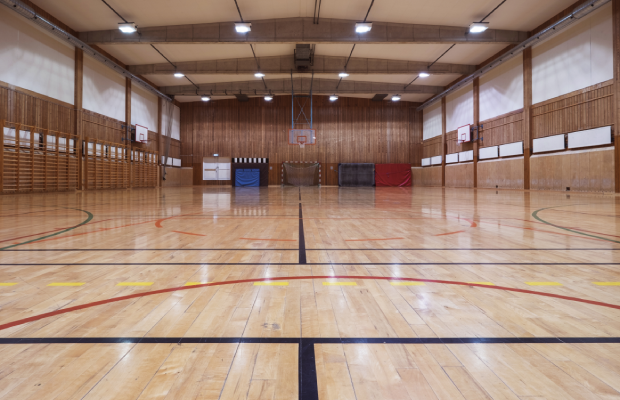GCSE Maths/Statistics Probability NEED HELP!!!!!
Could anyone help me on these Maths questions, Question 2a, Q4, Q5, Q6 and Q7. I'm really struggling so if anyone can provide working outs i will be very grateful, Thanks!



Original post by moththecat
Could anyone help me on these Maths questions, Question 2a, Q4, Q5, Q6 and Q7. I'm really struggling so if anyone can provide working outs i will be very grateful, Thanks!



YOU need to show US some working

Start with 2a.
What rules do you know for combining probabilities?
Original post by davros
YOU need to show US some working 
Start with 2a.
What rules do you know for combining probabilities?

Start with 2a.
What rules do you know for combining probabilities?
When combining probabilities you need to multiply both probabilities given. But i need to check my answers as many i have just guessed the answers.
This is what i have got so far.
Original post by moththecat
When combining probabilities you need to multiply both probabilities given. But i need to check my answers as many i have just guessed the answers.
This is what i have got so far.

This is what i have got so far.
OK, 2 looks good

For 5a I think you've added the probabilities. What would happen using this logic if you tried to calculate the probability she forgets her keys 11 days running? You'd get 11/10 which is bigger than 1! So, how should you combine the probabilities?
Original post by davros
OK, 2 looks good 
For 5a I think you've added the probabilities. What would happen using this logic if you tried to calculate the probability she forgets her keys 11 days running? You'd get 11/10 which is bigger than 1! So, how should you combine the probabilities?

For 5a I think you've added the probabilities. What would happen using this logic if you tried to calculate the probability she forgets her keys 11 days running? You'd get 11/10 which is bigger than 1! So, how should you combine the probabilities?
I'm not sure, could you help me on what to do.
Original post by moththecat
I'm not sure, could you help me on what to do.
Well, how else do you combine probabilities? (You had the right idea earlier!)
I think you need to assume that losing a key on one day is independent of losing it on another day, as you assumed in the earlier example too.
Original post by davros
Well, how else do you combine probabilities? (You had the right idea earlier!)
I think you need to assume that losing a key on one day is independent of losing it on another day, as you assumed in the earlier example too.
I think you need to assume that losing a key on one day is independent of losing it on another day, as you assumed in the earlier example too.
Well there is only one probability given so my guess would be 0.1*0.1=0.01
Original post by moththecat
Well there is only one probability given so my guess would be 0.1*0.1=0.01
That's right - or you could leave the answer as 1/100 since the original probabilities are given as fractions rather than decimals.
Original post by davros
That's right - or you could leave the answer as 1/100 since the original probabilities are given as fractions rather than decimals.
Could you help me with Questions 4, 6, or 7.
Original post by moththecat
Could you help me with Questions 4, 6, or 7.
Q4 is the same principle - seems to be assuming independence again!
Could anyone help me on Q5b and 7, i've done the rest.
Original post by moththecat
Could anyone help me on Q5b and 7, i've done the rest.
For 5b you will have 5 probabilities to multiply together,
Also, remember that forgetting = NOT remembering and vice versa. So how does the probability of remembering relate to the probability of forgetting?
1-PoF=PoR vice versa and finally any ideas on Q7, thank you so much for your help.
Original post by moththecat
1-PoF=PoR vice versa and finally any ideas on Q7, thank you so much for your help.
Well for (a)(i) does it matter about the green and yellow counters? Could you answer the question if you only had a red counter?

Quick Reply
Related discussions
- GCSE Edexcel Statistics resources
- Maths and archaeology
- Am I effectively guaranteed a Cambridge interview for English?
- just moved into uk curriculum from American..starting year 12 super confused
- Studying Phycology
- How much Maths in Biology and Psychology A Level?
- Are Latin and Ancient Greek GCSE more desirable to top uni's than other subjects?
- Economics at Uni with bad GCSE Maths and English
- edexcel gcse statistics
- Can a teacher MAKE me do a subject I really don't want to do?
- A level maths
- Adult GCSE Maths providers experienced with students with Dyscalculia and ADHD?
- Biology for psychotherapy or not?
- Easy Maths modules at University
- maths a level
- A level further maths worth it
- GCSE OCR History workload
- Would I be likely to get into Cambridge for law
- To or to not take Maths (and what to do if i don't)
- Psychology degree
Latest
Last reply 1 minute ago
Government Social Research - Research Officer Scheme 2024Last reply 1 minute ago
Official Royal Veterinary College Applicant Thread for 2024Last reply 1 minute ago
Looking for fellow students! MMU Postgrad.Last reply 7 minutes ago
Official UCL Offer Holders Thread for 2024 entryLast reply 7 minutes ago
Official London School of Economics and Political Science 2024 Applicant ThreadLast reply 8 minutes ago
Why are the grade requirements for Computer Science at Manchester University so high?Last reply 8 minutes ago
Official: University of Bristol A100 2024 Entry ApplicantsLast reply 9 minutes ago
Lloyds Apprenticeships 2024Last reply 13 minutes ago
The Official King's College London Applicants for 2024 Entry ThreadLast reply 15 minutes ago
Official University of St Andrews Applicant Thread for 2024Last reply 17 minutes ago
Official: University of Leicester A199 (foundation year) 2024 entry applicantsTrending
Last reply 17 hours ago
Did Cambridge maths students find maths and further maths a level very easy?Last reply 2 weeks ago
Edexcel A Level Mathematics Paper 2 unofficial mark scheme correct me if wrongMaths
71
Trending
Last reply 17 hours ago
Did Cambridge maths students find maths and further maths a level very easy?Last reply 2 weeks ago
Edexcel A Level Mathematics Paper 2 unofficial mark scheme correct me if wrongMaths
71




